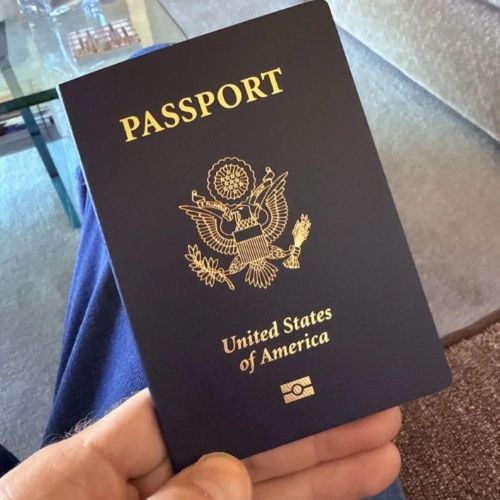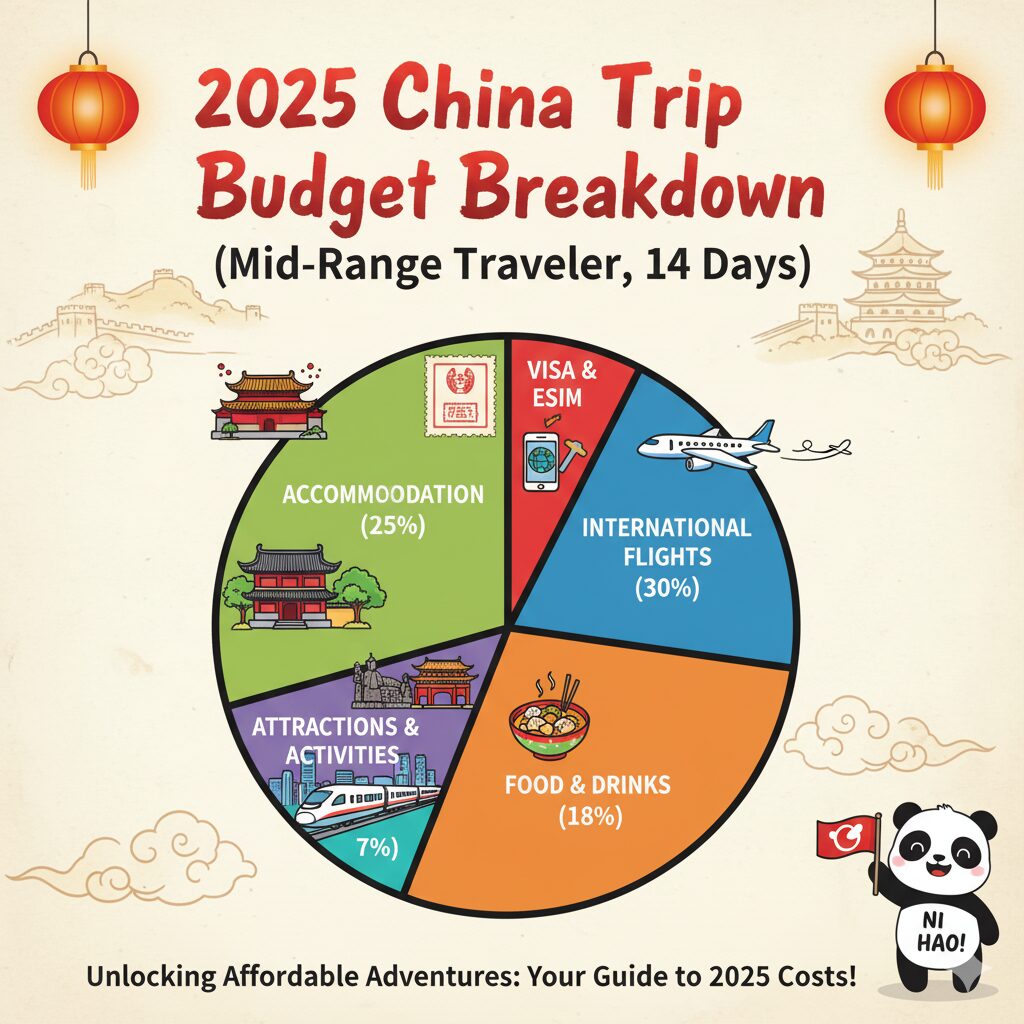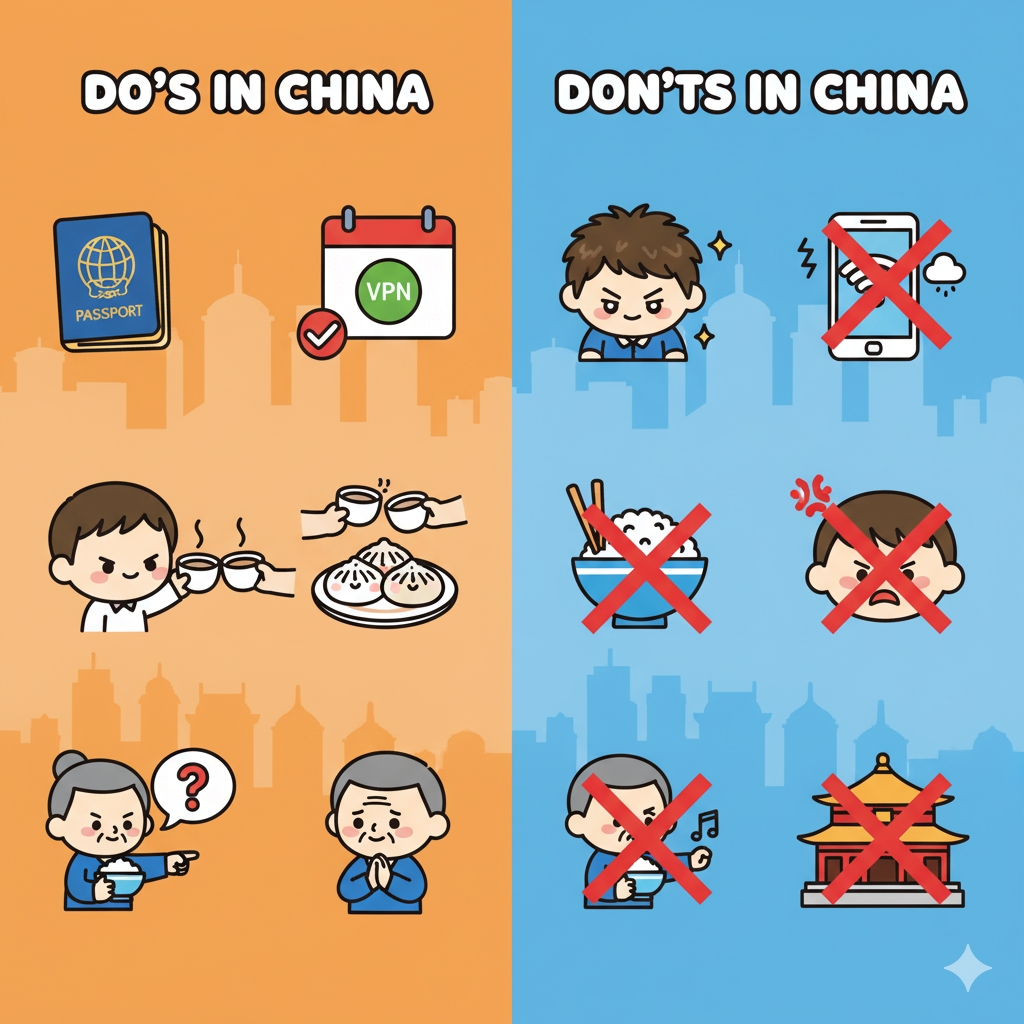
Do vs Don't
In 2025, China exists as an exhilarating cornucopia of ancient customs juxtaposed with cutting-edge modernity to entice millions of vacationers annually through its exciting culinary treats, its remote relics from thousands of years ago, and its exciting cities. But beyond the romance of speedy trains and storied skylines exist in China an alternate set of customs, folkways, and laws — those found nowhere else but in China. Many want to experience an experience “like the rest of the world”, only to discover that China has its own set of unique and unwritten rhythms and its own explicit laws. This is the reason understanding the various “don’t do” things to learning about the country before the suitcase is packed is not a mere formality; it is the secret of taking the vacation from clumsy blunders to an enervating vacation ride.
No one wants to learn by experience what it takes to travel—like delayed visas, wrong social cues, and unexpected fines. What follows will dispense with the pedantic jargon and focus on actual blunders tourists make that are backed up by actual usage. It will include how to obtain visa documents, how to access the Internet, table etiquette, avoiding scams, etc. Look at it as if you were receiving advice from an old traveller. If you’ve learned the dos and don’ts of the above, you will be able to travel in China comfortably with your mind on the discoveries to be made—the people, their customs, and their memories.
🛂 Documentation & Digital Prep — Avoid Arrival Panic and Tech Blocks
1. Do Not Arrive Without Proper Documentation — Visa and Transit Rules You Must Get Right
Chinese immigration has zero tolerance for paperwork issues. No exceptions, no second chances.
Required documents:
- Passport (valid 6+ months beyond your trip)
- Correct visa type (L for tourism, M for business)
- Proof of onward travel
- Hotel bookings or invitation letter
2025 visa-free transit rule — 55 countries now qualify for 240-hour stays, but there’s a catch: you must fly to a third country, so Beijing → Shanghai → home won’t count. If that sounds confusing, don’t worry — the details are clearer than they seem. Get the full breakdown, from eligible ports to real sample itineraries, in China Transit Visa: From 144 Hours to 240 Hours (2025 Update): Policy, Ports, and Itineraries.
💡 Pro tip: Screenshot your visa and save offline. Apply 6+ weeks before departure—processing takes 3 days to 4 weeks.
2. Do Not Skip VPN Setup Before Landing — How to Stay Online When Google Doesn’t Work
Here's what doesn't work: Google, Gmail, Instagram, WhatsApp, Facebook, YouTube. The Great Firewall blocks 10,000+ websites.
I watched a tourist at Shanghai airport trying to download a VPN. Problem? VPN websites are blocked too.
Your action plan:
- Install VPN 2+ weeks before departure and test it
- ExpressVPN and NordVPN work best
- Download WeChat as backup (works without VPN)
VPNs exist in a gray area—tourists are rarely prosecuted, but download before arrival. WeChat is essential for 1.3 billion people's daily life in China. Got your VPN sorted but still unsure about signal? Check Will My Phone Work in China?.
3. Do Not Rely on Credit Cards — Mobile Payments Rule China’s Streets
Standing outside a Beijing convenience store at midnight with only my Visa card, the clerk pointed at "cash only." That thirsty walk back taught me a lesson.
China runs on mobile payments, not credit cards. Your platinum Amex works at five-star hotels and almost nowhere else. Once you realize mobile payments rule the streets, your next step is Your Cashless Survival Guide.
Payment reality:
| Location | Credit Card Acceptance |
|---|---|
| Tier 1 cities | 50-60% |
| Tier 2 cities | 30-40% |
| Rural areas | Almost never |
Strategy: Bring ¥2,000-3,000 cash ($280-420) for arrival, set up Alipay Tour Pass before departure, and keep cash for rural areas.
4. Do Not Pack Prohibited Items — Customs Restrictions That Could Get You Fined
That Spanish ham? Illegal. CBD oil? Illegal. Your California vape? Extremely illegal.
An Australian traveler got fined $5,000 for undeclared gold jewelry. Failure to declare equals assumed smuggling.
Surprisingly banned:
- E-cigarettes and vapes (nationwide ban since 2022)
- Medications with pseudoephedrine or codeine
- Drones without permits
- Cheese over 1kg
- Any meat products
- Plants, seeds, or soil
Must declare: Anything worth ¥5,000+ ($700). Use the China Customs app to scan product barcodes before packing.
5. Do Not Photograph Security Areas — Where Cameras Can Get You in Trouble
My journalist friend tried capturing Beijing Airport architecture—accidentally got a security checkpoint. Result? Phone confiscated, 3 hours of questioning, all photos deleted.
Prohibited photography:
- Immigration halls and customs areas
- Police or military personnel (without permission)
- Military installations (often unmarked)
- Border crossings
- Government buildings with checkpoints
Safe approach: Wait until you clear immigration and reach public arrivals. Want a photo with uniformed personnel? Smile, show your camera, and ask with gestures first.
🎭 Cultural Rules — Blending In Without Embarrassment
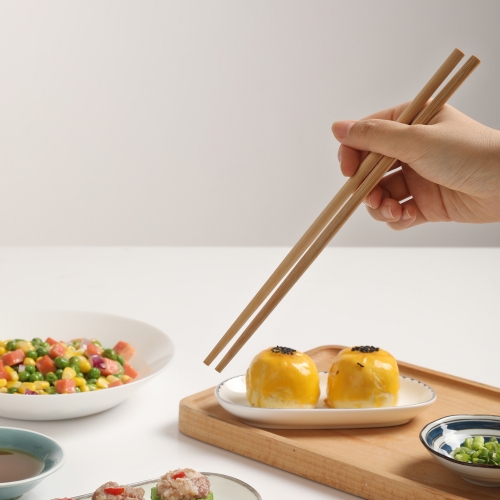
Chinese Chopsticks
6. Do Not Discuss Sensitive Politics — Topics That Can End Trips Fast
At a Shanghai bar, someone asked my opinion about Taiwan. Friendly conversation? No—it's a minefield. The "Three T's" (Tibet, Taiwan, Tiananmen) can trigger visa cancellation or deportation.
Topics to avoid:
- Xinjiang and Uyghur policies
- Hong Kong's political status
- Human rights criticisms
- Democracy comparisons
- Territorial disputes
Safe topics: Food, Chinese history (pre-1900s), traditional culture, travel destinations, daily life.
If asked directly: "I'm still learning about Chinese history, so I don't feel qualified to comment." Then redirect conversation.
🔒 Before arrival: Delete social media posts mentioning sensitive topics. Visa officers check phones—scroll back years.
7. Do Not Stick Chopsticks Vertically in Rice — Table Manners That Carry Deep Meaning
My first Chengdu dinner: exhausted, I stuck chopsticks upright in my rice. The table went silent. I'd just recreated a funeral altar—incense sticks at death ceremonies look exactly like this.
Other chopstick taboos:
- Never spear food (use as pincers)
- Don't point at people
- Don't tap bowls (beggars do this)
- Don't pass food chopstick-to-chopstick (funeral ritual)
Correct method: Rest chopsticks on the ceramic holder or lay across your bowl. Can't use them? Ask for a fork—hosts appreciate honesty.
Table customs are just the beginning — discover the deeper social codes in Chinese Etiquette
8. Do Not Tip — Why Gratitude Looks Different in China
After an incredible meal, I left ¥50 ($7). The waitress ran down the street after me, thinking I'd forgotten money.
In Chinese culture, tipping suggests workers aren't paid fairly—it's insulting, not generous.
Rare exceptions: Five-star international hotels (15% auto-added), high-end Western restaurants, private tour guides.
Show appreciation instead: Say "谢谢" (xièxie) warmly, compliment service to the manager, leave Dianping reviews.
Regional note: Hong Kong and Macau follow international norms (tip 10%). Mainland China? Keep your wallet closed. Tipping’s sorted, but how pricey is the rest of your trip? Get the answer in Is China Expensive to Visit in 2025?.
9. Do Not Display Excessive Public Affection — Social Boundaries Still Matter
Shanghai's French Concession: Western couple making out against a tree—uncomfortable stares and loud complaints about "foreign impropriety."
What crosses the line:
- Kissing (even briefly in some areas)
- Prolonged embracing
- Sitting on partner's lap
- Anything beyond conservative grandparents' comfort
Generally acceptable: Hand-holding, linked arms while walking, brief greeting/goodbye hugs.
| Location | Tolerance Level |
|---|---|
| Shanghai/Beijing | Higher |
| Tier 2 cities | Moderate |
| Rural areas | Very conservative |
LGBTQ+ travelers: Same-sex PDA faces more scrutiny. Exercise extra caution outside major cities.
10. Do Not Give Taboo Gifts — How to Choose Presents That Show Respect
I gave my Chinese host a green baseball cap. He looked shocked. I'd just suggested his spouse was cheating—"wearing a green hat" (戴绿帽子) means being cuckolded.
Gift taboos:
| Item | Why It's Bad |
|---|---|
| Clocks | Sounds like "attending funeral" |
| Umbrellas | Sounds like "separation" |
| Sets of four | Number 4 sounds like "death" |
| Shoes | Implies you want them to leave |
| White flowers | Exclusively for funerals |
| Sharp objects | Symbolize "cutting" relationships |
Safe gifts: Tea, specialty snacks from your country, items in red packaging, sets of 2/6/8/9, fruit baskets.
The ritual: Chinese etiquette requires refusing gifts 2-3 times before accepting. Insist gently.
11. Do Not Ignore "Face" Culture — The Art of Polite Communication
My first Shenzhen meeting: I said directly, "That won't work because..." Meeting ended abruptly. I'd made him "lose face."
Face (面子) = social currency. Making someone lose face damages relationships worse than being technically right.
How people lose face: Public criticism, mistakes pointed out in front of others, loud refusal, being contradicted by juniors.
How to disagree politely:
- Pull person aside privately
- Use softening: "Perhaps we could also consider..."
- Ask questions: "What if we approached from this angle?"
- Never say "wrong"—say "there might be another way"
For tourists: When things go wrong, complain privately to a manager. Better results, everyone saves face.
🚇 Daily Travel Essentials — Small Habits, Big Comfort
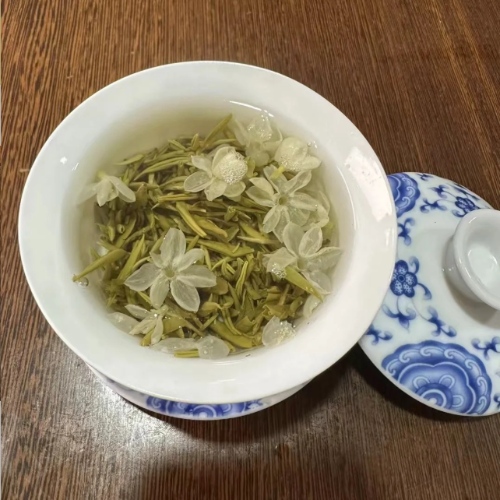
Jasmine Tea
12. Do Not Drink Tap Water — Staying Healthy While Traveling Across China
Day three in Chengdu: I woke at 3 AM with my stomach violently revolting. I'd brushed teeth with tap water and swallowed some. That cost me two days.
Chinese tap water isn't toxic, but your stomach isn't adapted to local microorganisms. Chinese people drink it—but always boiled first. Hot water dispensers appear everywhere and are safe.
Your water strategy:
- Bottled water costs ¥2-5 at convenience stores
- Hotels provide free bottles daily—take extras
- Filtered bottles (LifeStraw, Grayl) provide independence
- At restaurants, choose hot water/tea (always safe)
Ice warning: Reputable restaurants use filtered water. Street vendors often don't. When uncertain, skip ice.
13. Do Not Forget Toilet Paper — The One Thing Every Traveler Regrets
Beijing train station: I finished my business, then reached for toilet paper. Nothing. Not even an empty dispenser—just bare walls.
Roughly 60% of public toilets don't provide paper.
Public toilet reality:
| Location | Paper Provided |
|---|---|
| Five-star hotels | Always |
| Tier-1 malls | Usually |
| Train stations | Rarely |
| Tourist sites | Sometimes (¥1 fee) |
| Public parks | Almost never |
Your survival kit: Travel tissue packs (¥1 for 10-pack), hand sanitizer (60%+ alcohol), wet wipes, small plastic bag (older plumbing can't handle flushed paper).
Finding toilets: Learn "厕所在哪里?" (Cèsuǒ zài nǎlǐ, "Where's the toilet?") or show toilet emoji.
14. Do Not Fall for the Teahouse Scam — How to Avoid Common Tourist Traps
Walking near Wangfujing Street, two friendly young people approached to "practice English." After 20 minutes, they invited me to a "tea ceremony at uncle's teahouse."
I declined. Smart choice. Another traveler wasn't fortunate—his bill? $380 for tea and snacks. Three large men escorted him to an ATM.
How the scam works:
- Friendly "students" approach at tourist sites
- Engage in genuine-seeming conversation
- Invite to "traditional ceremony" nearby
- Bill arrives: ¥2,000-4,000 ($280-560)
- Intimidation prevents leaving until you pay
Other scams: Fake taxi meters (use Didi), fake monks pushing "blessed" bracelets, black cabs at airports (use official ranks).
Protection: Never go to secondary locations with people you just met. Research prices beforehand (real tea ceremony: ¥50-100). If scammed, call 110.
15. Do Not Travel During Golden Week — Surviving China’s Biggest Crowds
I visited the Great Wall during National Day Golden Week. I couldn't see the wall—only thousands of heads packed shoulder-to-shoulder. We moved 10 meters per hour for four hours.
Golden Week = 800 million people on vacation simultaneously.
Three major holidays:
- Chinese New Year: January 29-February 4, 2025
- Labor Day: May 1-5
- National Day: October 1-7 (busiest week)
What happens: Hotel prices triple, train tickets sell out 30 days advance, flights cost 4-5x normal, tourist sites hit capacity, restaurant waits extend to 2+ hours.
Best times to visit: March-April or September-November. Pleasant weather, manageable crowds, reasonable prices.
16. Do Not Use Drones Without Permits — Legal Risks Few Tourists Know
A British vlogger spent three days detained in Yunnan after flying his drone. Footage deleted. Drone confiscated. Fine: ¥5,000. Crime? Flying near an unmarked military area.
What's banned: Within 5km of airports, near military facilities (not always marked), government buildings, large events, entire regions (Tibet, Xinjiang).
The permit problem: Requires Chinese national ID (foreigners don't have), registration with Civil Aviation Administration, local police approval. Processing takes weeks to months.
Penalties: Fines ¥1,000-20,000, detention 3-15 days, equipment confiscation, extreme cases: espionage charges.
Real case: Japanese tourist flew drone over Tiananmen Square—immediate detention, lifetime China ban.
What to do: Leave drone at home, hire local photographers with permits, use selfie sticks, accept some perspectives aren't possible.
17. Do Not Assume Western Social Media Works — Digital Life Behind the Firewall
Google doesn't work. Gmail doesn't work. Instagram won't open. WhatsApp won't send. Facebook, Twitter, YouTube—all blocked.
Major blocked services: Entire Google ecosystem, Facebook/Instagram/WhatsApp, Twitter/X/Telegram, Netflix/Hulu/Disney+, major news sources, Dropbox/Spotify.
What works: Apple Maps, iMessage, LinkedIn, Bing (limited).
Your solutions:
- Download offline Google Maps before departure
- Download shows/playlists for offline access
- Save documents as PDFs locally
- Download translation app language packs
Chinese alternatives: Baidu Maps (navigation), WeChat (messaging), Didi (transportation), Meituan/Eleme (food). Once you hit the firewall, you’ll need a new toolkit — start with China Travel Apps Guide.
VPN reality: Must install before arrival, works inconsistently, connection speeds drop 50-70%.
18. Do Not Jump Queues — Unspoken Rules of Public Courtesy
Chinese queues look chaotic, but jumping ahead is seriously rude. I've watched elderly women forcefully shove queue-jumpers back while loudly shaming them.
The difference: Western queues form rigid lines. Chinese queues resemble organic blobs. But there is order—locals know who arrived when.
Standing your ground:
- Don't leave space in front of you
- Stay close to person ahead
- If someone cuts, block while saying: "不好意思,我在排队" (Bù hǎoyìsi, wǒ zài páiduì, "I'm in line")
Avoid queues entirely: Book services online, use apps showing wait times, visit off-peak hours, ask hotel concierges about fast-track options.
The shift: Tier-1 cities increasingly adopt Western-style orderly queuing. Traditional markets and smaller cities still use organic blob system.
⚖️ Legal Boundaries — Mistakes That Can Cost You More Than Money
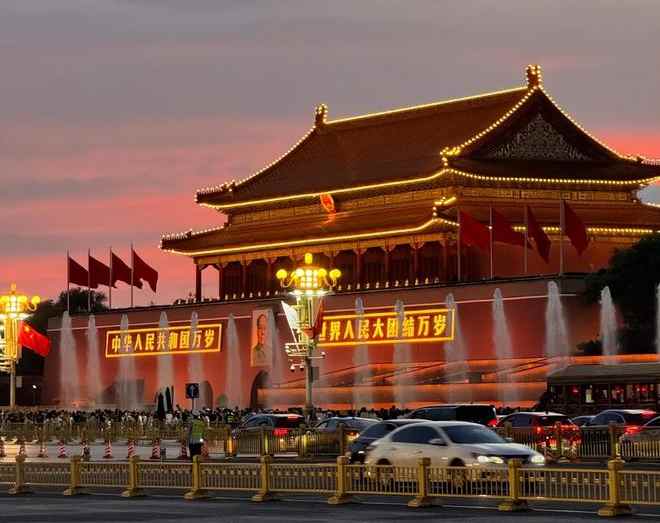
Tiananmen Square
19. Do Not Overstay Your Visa — How One Day Can Ruin Future Travel Plans
A Canadian teacher miscalculated his visa expiration and overstayed three days. The fine? Manageable. The real punishment? Five-year ban from China. His girlfriend, job, entire Shanghai life—gone.
Zero tolerance: Your visa expires at 23:59:59 on listed date. If you're in China at 00:00:01, you're in illegal presence.
Common mistakes: Confusing visa validity with duration of stay, not accounting for time zones, assuming grace periods (don't exist), flight delays.
Penalties: ¥500 per day (first offense), ¥1,000 daily (repeat), entry bans 1-10 years, detention for serious violations.
The lasting damage: Overstay gets permanently flagged. Travelers report being denied visas to Japan, Korea, EU countries because of Chinese overstay records.
Protection: Set reminders 7 days before expiration, book flights with 2-day buffer, screenshot visa, apply for extensions 7-14 days early.
20. Do Not Engage in Activities Legal at Home — Local Laws With Global Consequences
China's definition of "illegal" includes numerous activities legal in your home country. "I didn't know" provides zero protection.
Drug offenses (zero tolerance):
- Marijuana possession → 10-15 days detention, deportation, ban (even if legal at home)
- Drug trafficking → death penalty (China executes foreigners)
- Prescription medications with controlled substances → treated as illegal without documentation
- Positive drug tests from past consumption → criminal records and deportation
Real cases: Canadian executed for drug trafficking (2019), American student deported after marijuana mailed to him, British DJ lifetime ban after testing positive for THC.
Other illegal activities: Gambling (all forms), prostitution (both buyers and sellers), working without permits, unauthorized surveying, religious proselytizing.
Penalties: Detention 5-15 days, imprisonment months to years, deportation with bans, death penalty for major drug trafficking.
If arrested: Demand embassy contact, never sign documents you don't understand, request interpreter, remain calm.
21. Do Not Disrespect National Symbols — Showing Respect at Monuments and Temples
In China, disrespecting national symbols carries legal consequences. What you consider a "funny photo" can lead to fines, detention, and permanent bans.
National flag protection: Burning, trampling, defacing = criminal offense. Wearing inappropriately = disrespectful. Mocking depictions = possible imprisonment.
National anthem protection: Mocking or parodying = legal violation. Distorting lyrics = prosecuted.
Sensitive sites: Nanjing Massacre Memorial, revolutionary martyrs' tombs, Tiananmen Square—all require absolute respect.
Viral mistakes: German tourist Nazi salute → arrested, banned. Western influencer provocative temple dancing → visa cancelled. Tourists carving names into Great Wall → ¥5,000 fines.
Temple etiquette must-do: Remove hats/sunglasses, dress modestly, remove shoes in prayer halls, ask permission before photographing.
Never do: Point at Buddha statues with feet, touch artifacts without permission, disrespectful selfies, eat/drink in prayer halls.
Guiding principle: Would you do this at Arlington Cemetery or 9/11 Memorial? If no, don't do it in China.
💡 Essential Tools & Emergency Contacts — Your Backup Plan for China Travel
Critical Apps (Download Before Departure)
Translation: Pleco, Google Translate (offline packs) Navigation: Baidu Maps, Apple Maps Transportation: Didi, 12306, Ctrip Payment: WeChat, Alipay (Tour Pass) Food: Meituan, Eleme VPN: Install and test 2+ weeks early
Emergency Contacts (Save Offline)
Universal: Police 110, Fire 119, Ambulance 120, Tourist Hotline 12301
US Embassy: Beijing +86 10 8531 3000, Shanghai +86 21 8011 2200, Guangzhou +86 20 3814 5000
Packing Essentials
Passport/visa photocopies (separate from originals), VPN (pre-installed), toilet paper packs, prescription medications with documentation, universal power adapter, offline maps, emergency cash ¥2,000-3,000, face masks, portable charger, notebook with key phrases.
FAQ: Common Questions About Things to Not Do in China — Real Answers for Everyday Situations
Q: Can tourists really get in trouble for discussing politics in China?
Talking about politics can be risky, especially if you mention Taiwan, Tibet, or Tiananmen Square. In private settings, locals might discuss it quietly, but public debates or online posts are sensitive. Even Chinese citizens often avoid these topics. If someone brings them up, it’s safer to stay neutral and steer the chat to culture or food instead.
Q: Is it okay to drink alcohol in public?
Public drinking is technically allowed, but being visibly drunk attracts unwanted attention. Police patrol busy areas, and foreigners are held to higher behavior standards. Locals may think public drunkenness shows poor self-control. If you want a drink, keep it moderate or stick to bars and restaurants. It’s about saving face more than following a rule.
Q: Are tattoos or revealing clothes considered offensive?
Tattoos and modern fashion are common in big cities, but not everywhere. In temples or smaller towns, people might stare or think it’s disrespectful. You won’t get fined, but it’s better to cover up in traditional areas. A light jacket or scarf solves it easily, and locals appreciate when visitors show cultural sensitivity.
Q: Can you take photos of police or checkpoints if it’s for travel content?
Don’t. Photographing police, soldiers, or checkpoints is considered a security issue. Even foreign vloggers have lost cameras over this. You can film streets or public landmarks freely, but avoid anything official-looking. If unsure, ask a nearby officer or skip it altogether—it’s not worth the risk.
Q: Is it rude to refuse food when visiting locals?
Yes, a little. Turning down food can feel like rejecting hospitality. Even if you’re full, try a small bite and compliment the taste. Say “很好吃!” (very tasty) and they’ll beam. If you have allergies or dietary limits, explain politely with a translation app before the meal starts.
Q: Can foreigners use drones legally for personal videos?
Technically yes, but only with a permit that’s hard to get. Flying without approval can lead to confiscation or fines. Many travelers hire local drone pilots who already have licenses—it’s easier and keeps you safe. Some scenic spots even have official drone zones, so check signs before takeoff.
Q: What happens if I accidentally overstay my visa by one day?
You’ll likely pay a ¥500 per day fine, and it stays in your record. Even a short overstay can cause trouble for future visas. Immigration officers are strict about timing, so always confirm your departure date and keep a reminder set on your phone. It’s better to leave early than risk a ban.
Q: Is chewing gum or littering really a big deal?
In many cities, yes. Shanghai, Shenzhen, and others fine up to ¥200 for littering. Locals take cleanliness seriously, and street cleaners are respected workers. Carry a small bag for trash and wait for bins. It’s not just about fines—it’s showing respect for the community that hosts you.
